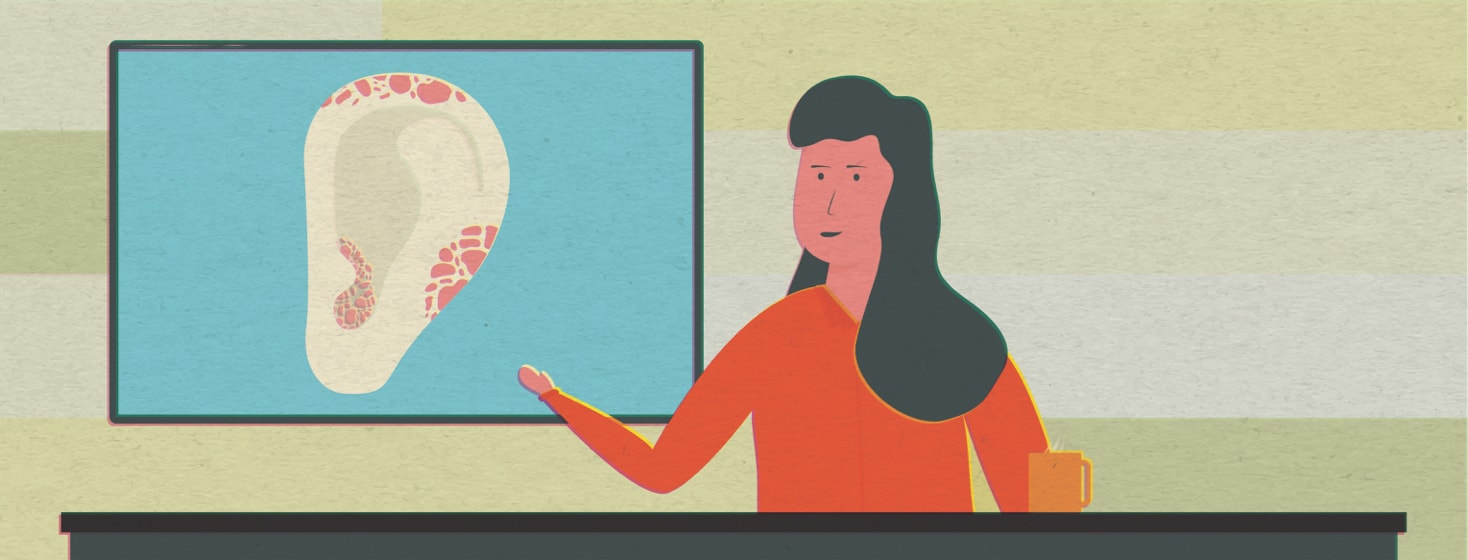Ear Psoriasis: I Need You To Hear This
I have had psoriasis for over 50 years. There is not a place on my body that has not been affected by this disease. As you know, psoriasis is a skin condition that can occur on different points of the body. It affects our immune system and causes our skin cells to divide far too quickly.
Ear psoriasis management tips
In healthy people, the skin renews itself every 28 days, but with us, it could be every 7 days. Our skin becomes flaky, itchy, and inflamed. My arms and legs are usually the most affected, but it can attack you all over including the ears.
Here is some basic information about managing and treating ear psoriasis.
Where does ear psoriasis occur?
There are three areas that are particularly affected when psoriasis occurs in the ear region. It can be behind the ears, the auricle, and the ear canal. The affected areas can also change over time and spread to other parts of the body which has happened to me often.
This or That
Do you find it helpful to connect with others living with psoriasis?
If psoriasis occurs in the ear, there are different symptoms you can have. With mild forms of psoriasis, the effects are more of a visual nature. In severe cases, hearing is also affected by this. The most common symptoms are abnormal redness, dandruff in the ear region, itching, irritated and sensitive skin, feeling that the ear is blocked, and bad hearing. Some sufferers have hardly any complaints. Other people affected must cope with some restrictions.
How do I treat ear psoriasis?
Psoriasis is an autoimmune disease. This means that it cannot be prevented with current methods. However, several factors help keep psoriasis at bay. I can only remember having ear psoriasis a few times. I had to go to the doctor to get my ears flush out several times. The flakes would fall in my ears causing discomfort. The doctor would put oils in my ear for comfort.
Even if psoriasis in the ear is not curable, it can usually be treated. Because of the sensitive skin in this region of the body, a well-coordinated treatment approach is important. The right mix of creams, medication, and supportive healing methods often make psoriasis more bearable in the ears. Natural remedies and holistic therapy procedures such as light therapy is also recommended. A doctor should always be consulted for the best results.
What happens if I scratch my ears?
The skin in the ear region is very thin and sensitive. Therefore, it often itches particularly strongly. Nevertheless, you should never scratch these spots. Trying to remove flakes in your ear is also dangerous. The skin may start to bleed and become inflamed and make things worse.
It can also make psoriasis spread beyond the ear. The ear canals should only be treated in consultation with a doctor. When using creams and ointments, only a thin layer may be applied. Active ingredient residues can cause further inflammation in the ear canal.
Can ear psoriasis cause deafness?
My husband asks me all the time: are you deaf? The doctor is still out on this one. In severe cases, psoriasis can lead to hearing loss. In most cases, however, this disappears automatically after a short time.
The causes of hearing loss have not yet been researched as of yet. Psoriasis sufferers should have their ears checked regularly by a specialist.
Coping with ear psoriasis
Psoriasis can be emotionally and physically challenging for many people, but they can usually manage the condition with support from a doctor.
A person with psoriasis in the ears should have regular hearing checks and ear examinations to address any complications as early as possible. Left untreated, psoriasis of the ear can become increasingly uncomfortable. Visit your doctor or dermatologist today, to start your path to relief.

Join the conversation